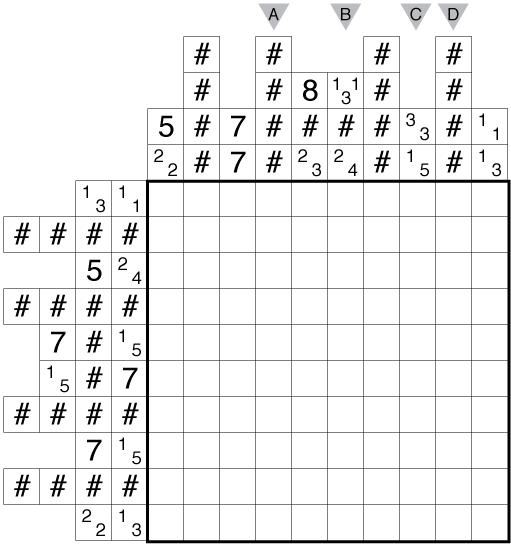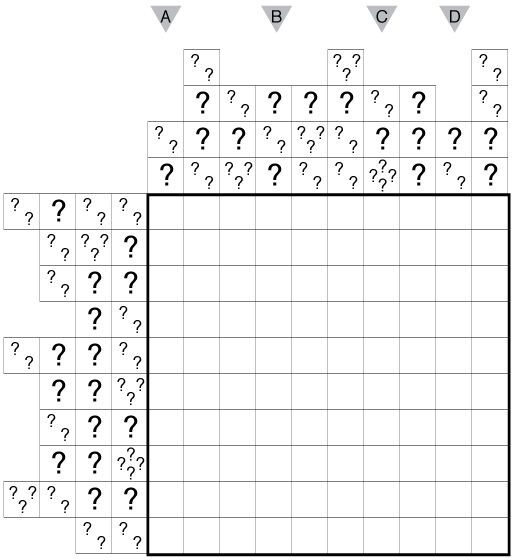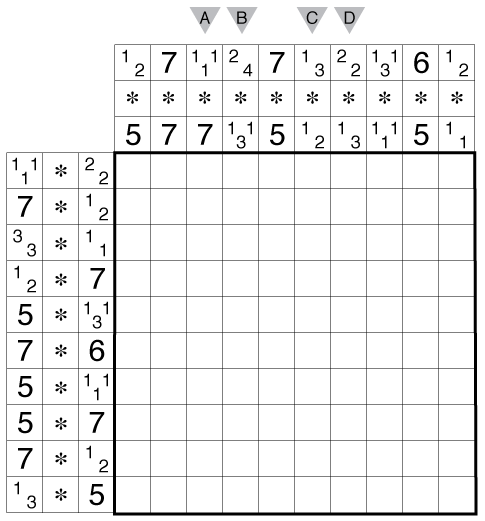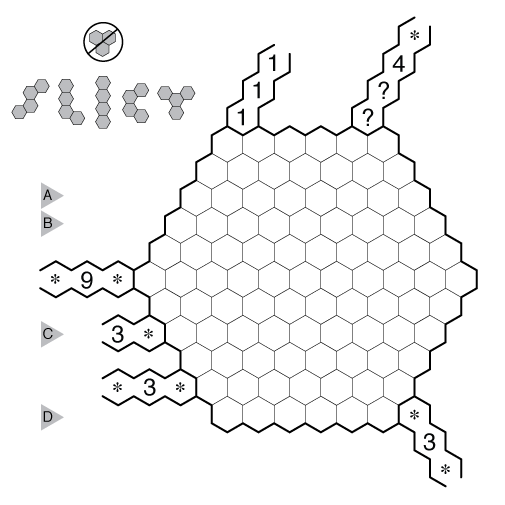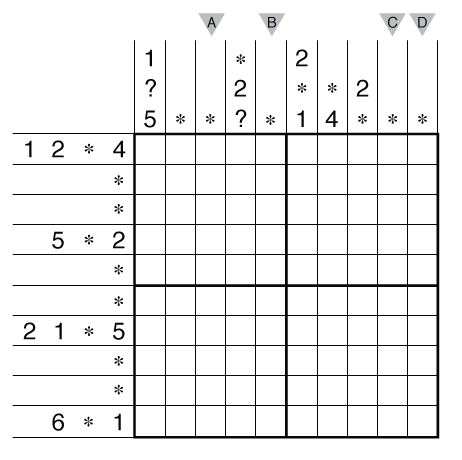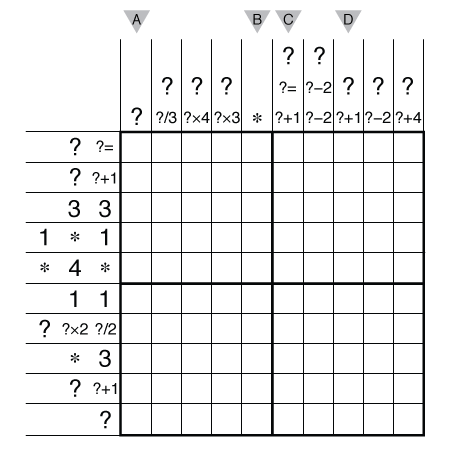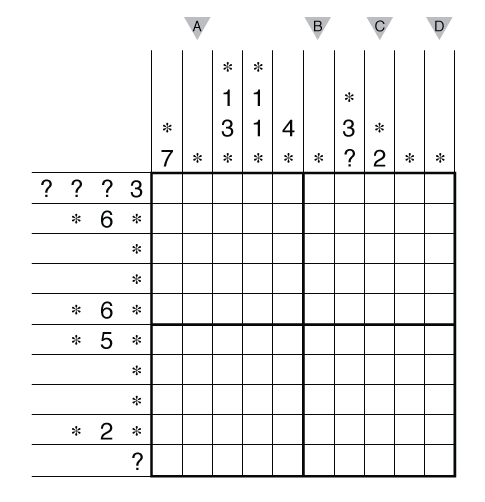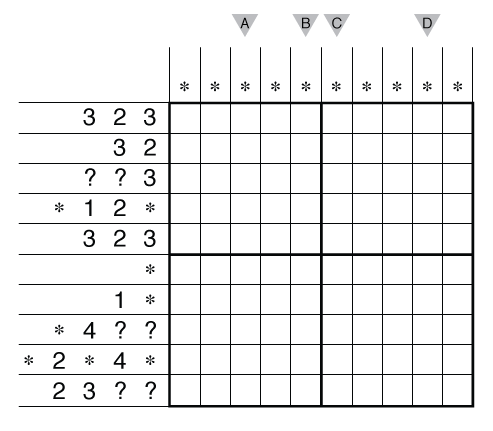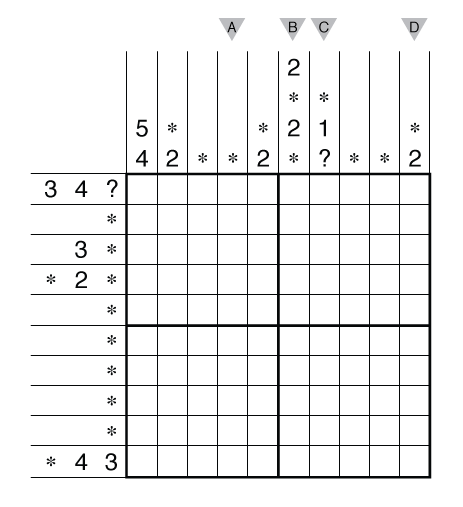Cross the Tapa by Chris Green
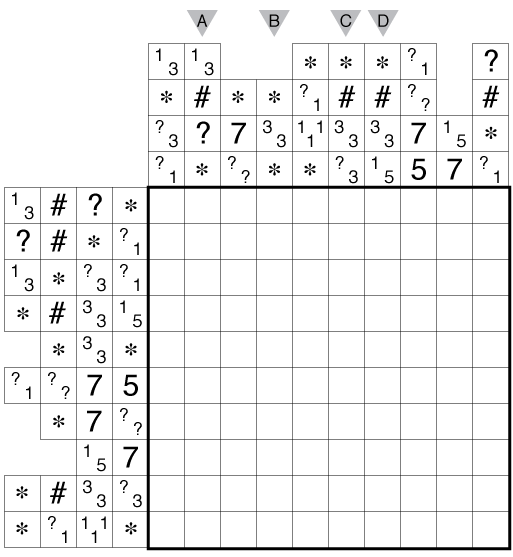
or solve online (using our beta test of Penpa-Edit tools; use tab to shift between shading mode, a number entry mode for placing Tapa clues, and the composite Yajilin mode where left click marks cells, right click marks dots in cells or X’s on edges, left click+drag draws lines.)
Theme: Mix and Match (Each set of row clues is also a set of column clues)
Author/Opus: This is the 8th puzzle from guest contributor Chris Green.
Rules: (Style created by Chris Green as a combination of Cross the Streams and Tapa rules.)
Shade some empty cells black to create a single group of black cells that are all connected to each other through their edges. No 2×2 cell area within the grid contains all black cells.
Numbers and symbols to the left/top of the grid represent all unshaded cells in the grid in that row/column in order, either from left to right or from top to bottom. The numbers and symbols represent the value of Tapa-style clues inside the grid, specifically the length of consecutive shaded blocks in the neighboring cells. If there is more than one number in a cell, then there must be at least one white (unshaded) cell between shaded groups.
The three symbols indicate different kinds of missing information.
– A question mark (?) represents a single missing positive integer as part of a clue (either alone or in combination with other numbers/question marks).
– An octothorpe (#) represents a single white clue cell which may have any combination of values including a single number or multiple numbers.
– An asterisk (*) represents an unknown number of white clue cells, including one, multiple, or no clue cells at all. Any clue cells indicated by an asterisk can have any combination of values including a single number or multiple numbers.
Also see this example by Thomas Snyder:
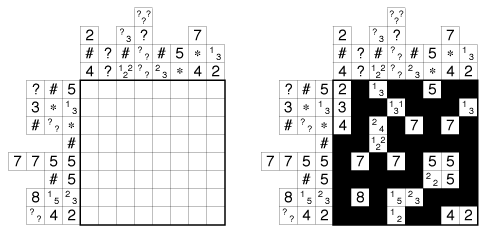
Answer String: Enter the length in cells of each of the black segments from top to bottom for the marked columns, going in order from A to B to C to D and separating each entry with a comma.
Time Standards (highlight to view): Grandmaster = 7:00, Master = 12:00, Expert = 24:00.
Solution: PDF; a solution video is available here.
Note: Follow this link for other Cross the Streams and this link for other Tapa.

